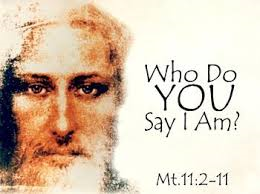The Christmas mystery has two parts: the Nativity and the Epiphany. In the first we commemorate God’s humble entrance into human life, and in the Epiphany, its manifestation to the world. The first only happens in order that the second may happen, and the second cannot happen without the first. We are reminded that Christ, as the incarnation of the Father, speaks to us in our language. He came as the light of the world to share his light and the way to the Father. He came for all mankind, Gentiles as well as to the people of Israel. Of interest is the fact that when Matthew (Matthew 2:1-12) wrote, the Gentiles were an outcast, they were outsiders. For us today, it calls all our comfortable religious exclusiveness into question.
The Light of the world is not just relegated to the
sanctuary of our Church. Matthew reminded us last week that the child was born
to scandal and despite his visitation from men of letters from the east, he was
raised among and died alongside the disenfranchised. Meister Eckhart tells us
that the Eternal Birth must take place in
each of us and that we are like the stable inhabited by the ox of passion and
the ass of prejudice, animals which take up a lot of room and which most of us
are feeding. And it is there between them, pushing them out, that Christ must
be born.
The birth of Christ in our souls is for a purpose beyond
ourselves: it is because his manifestation in the world must be through us.
Every Christian radiates His Light
The
birth of Christ is an example both unique and eternal of how the will of God is
worked out on earth. It is the birth of love in our hearts, which transforms
life. God’s love overwhelms us and breaks into our lives leaving our human good
will behind…The Word became flesh so that the same amazing life that broke into
the world when Jesus Christ was born actually becomes realized in our own lives
here and now. Yielding
to God, (Phillip Britts)




















